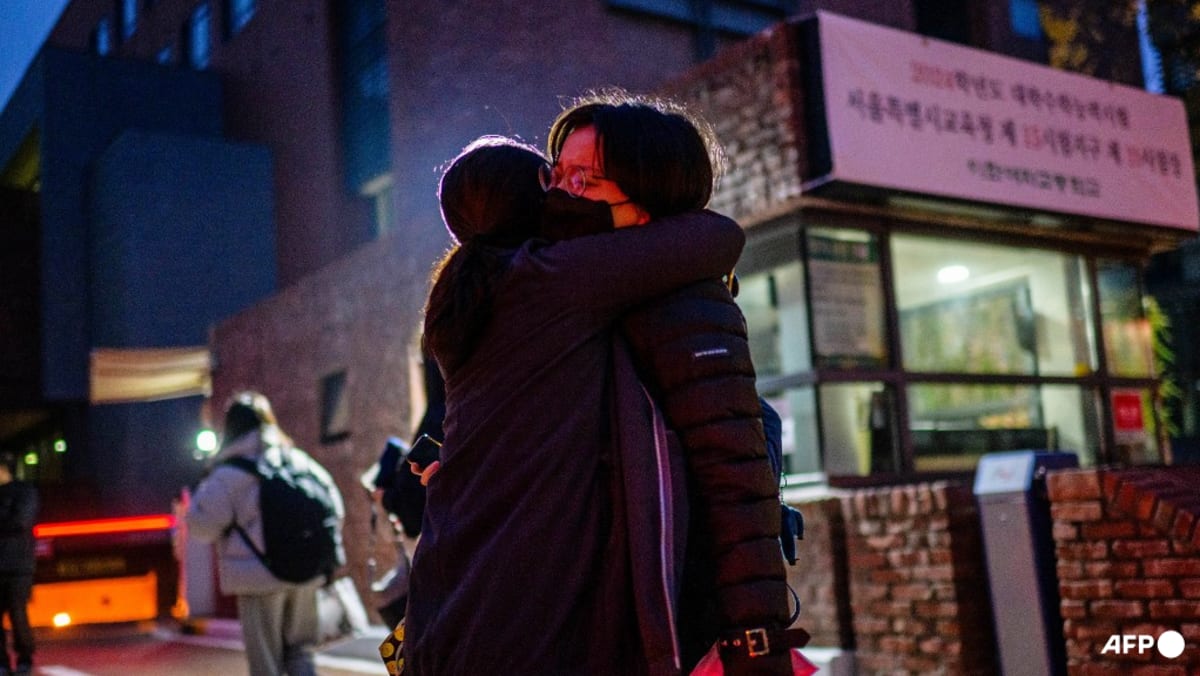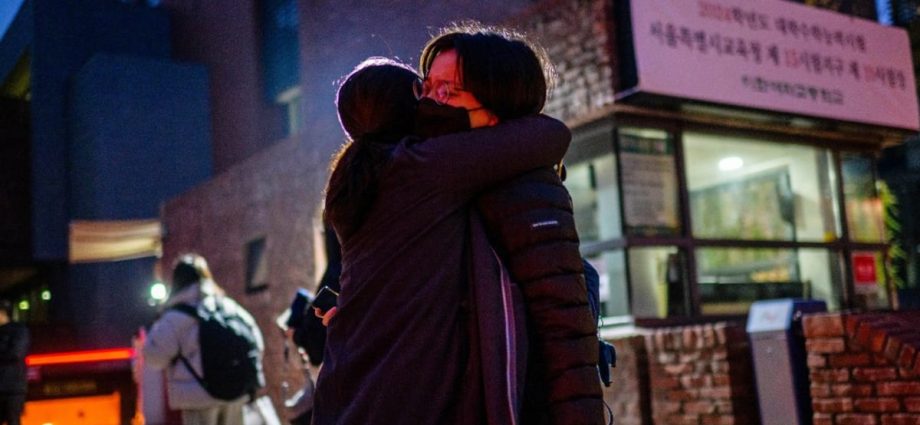
For this year’s exam, authorities dropped so-called “killer questions” – which cannot be answered by simply studying the curriculum taught at public schools – in a bid to reduce reliance on expensive private cram schools.
“In accordance with the Ministry of Education’s measures to reduce private education, so-called ‘killer questions’ were excluded,” Jeong Moon-seong, a university professor who supervised the exam’s administration this year, told reporters Thursday morning.
“Questions of suitable difficulty were selected evenly to ensure that (students) can demonstrate their understanding based solely on the content covered in the public education curriculum,” he added.
Enormous pressure placed on students in South Korea’s ultra-competitive education system has been blamed for teenage depression and suicide rates that are among the highest in the world.
South Korean households spent more than US$20 billion on private education for primary, middle and high school students last year, according to Statistics Korea.
The figure translates to an average monthly expenditure of US$320 per student.
Police cars and regional government officials were on standby to help students running late for the exam reach their test sites in time.
This year’s test also marks the first time that test-takers are writing the exam without wearing masks since the pandemic began.

